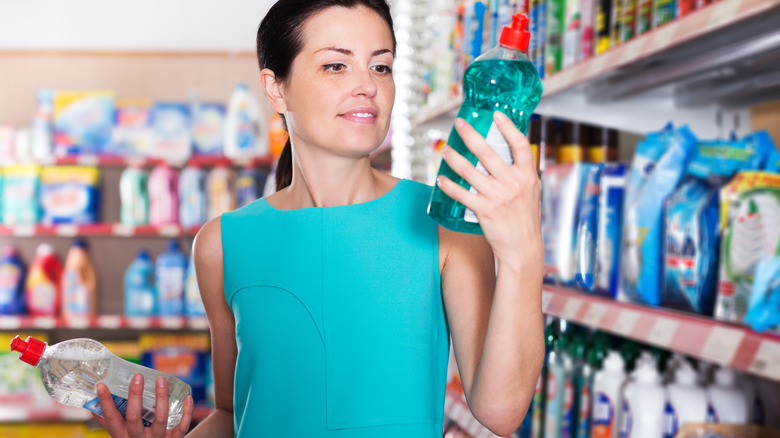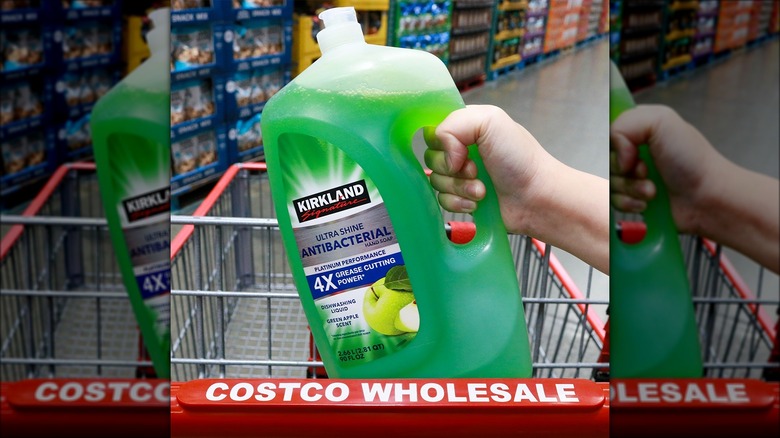Why A New Costco Soap Is Getting Dirty Looks From Some Facebook Users
"You asked, we listened!" exclaims Costco's Facebook post about its new Kirkland brand Ultra Shine Antibacterial dishwashing and hand soap. With over 8000 likes, it seems that many customers approve. However, not everyone was enthusiastic. For example, Eric S Weiss replied, "Antibacterial soaps can create antibiotic-resistant bacteria. Best to use regular non-antibacterial soaps." A displeased Katie Leonetti wrote, "This being antibacterial is not good for the environment or people's health. Disappointed!" Denise Gall didn't like the idea either: "And I don't do antibacterial soap if I can avoid it. It creates a bigger problem."
Is there something to the concerns of the detractors? It can sometimes be difficult to distinguish between what is fact and an unfounded theory. However, there are some things we might take at face value – especially if the majority of the population is doing it. Antibacterial soaps are pretty commonplace. To many people, they sound better than normal soap at getting rid of nasty bacteria, and during the pandemic, those soaps became a must-have (via Allied Market Research). But the evidence about their effectiveness might suggest otherwise.
What does the evidence say about antibacterial soaps?
Back before the pandemic in 2016, Dr. Janet Woodcock of the FDA's Center for Drug Evaluation and Research said "Consumers may think antibacterial washes are more effective at preventing the spread of germs, but we have no scientific evidence that they are any better than plain soap and water" (via the FDA website). The agency even banned soap products containing triclosan and triclocarban (among other substances) because studies show these ingredients may have long-term effects such as "bacterial resistance and hormonal effects." They weren't proven to be harmful, but soap producers failed to demonstrate their safety.
So, what is the difference between "plain soap" and an antibacterial soap? According to the CPSC, plain soap on the other hand is made up of "alkali salts of fatty acids." These can include ingredients like coconut oil, tallow, and glycerin (via Healthline). Antibacterial soaps contain certain additional chemicals that aren't in regular soap. Since triclosan and triclocarban were banned from use, companies have relied on different ingredients such as benzalkonium chloride, benzethonium chloride, and chloroxylenol. Where does Costco's soap fit into that mix? The Kirkland Signature Ultra Shine Antibacterial dishwashing liquid contains the anti-bacterial active ingredient chloroxylenol (via DailyMed). While the FDA has proposed studies into the effectiveness of these non-banned ingredients, it did not raise any particular concerns over their use. So even though some Facebook users objected the Costco's post, it appears the science isn't settled.

